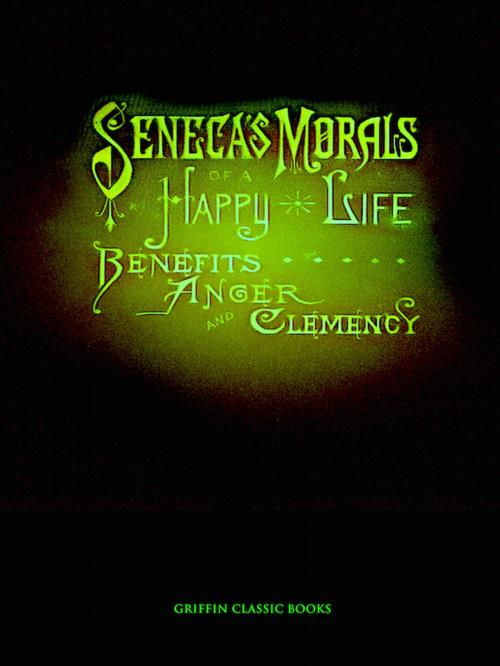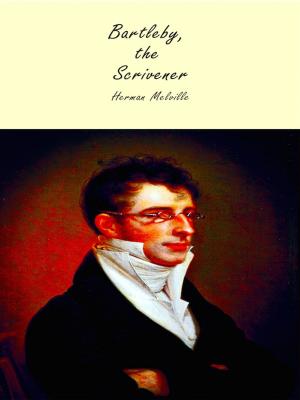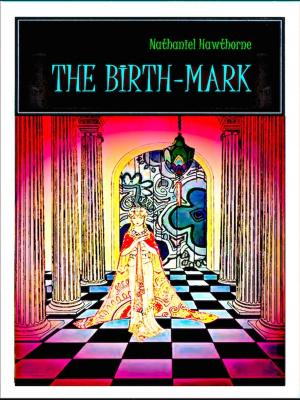Seneca's Morals
Of a Happy Life, Benefits, Anger, and Clemency
Nonfiction, Religion & Spirituality, Philosophy, Ancient| Author: | Seneca | ISBN: | 1230002303888 |
| Publisher: | Editions Artisan Devereaux LLC | Publication: | May 2, 2018 |
| Imprint: | Language: | English |
| Author: | Seneca |
| ISBN: | 1230002303888 |
| Publisher: | Editions Artisan Devereaux LLC |
| Publication: | May 2, 2018 |
| Imprint: | |
| Language: | English |
If poets and philosophers dream of influencing those in power, Seneca was uniquely positioned to do so in ancient Rome.
He was a celebrated rhetorician, ethicist, satirist, the author of several books of natural history, and an esteemed playwright.
Among his most important works of moral philosophy, Seneca's Morals of a Happy Life, Benefits, Anger and Clemency stands out for its rigorous study of human behavior.
In it, Seneca discusses good deeds and badly performed favors, graceful and ungraceful receiving, the joy or burden of returning favors, as well as gratitude and envy.
Seneca's topic is a hybrid of the kind of phenomena anthropologists discuss in terms of gift exchange, the specific configuration of these phenomena studied in ancient Rome, and Stoic views to the effect that only the good person benefits others.
Ultimately, Seneca is concerned with how we can perfect our soul, and he pursues this question in a variety of ways—by discussing in great depth and passion human virtue, nature, theology and the soul.
Lucius Annaeus Seneca (c. 4 BC – AD 65), was a Roman Stoic philosopher, statesman, and dramatist. Seneca was born in Cordoba in Hispania, and raised in Rome, where he was trained in rhetoric and philosophy. He was a tutor and later advisor to emperor Nero.
As a writer Seneca is known for his philosophical works, and for his plays, which are all tragedies. His philosophical writings include a dozen philosophical essays, and one hundred and twenty-four letters dealing with moral issues. As a tragedian, he is best known for his Medea and Thyestes. He was forced to take his own life for alleged complicity in the conspiracy to assassinate Nero, in which he was likely to have been innocent. His stoic and calm suicide has become the subject of numerous paintings.
If poets and philosophers dream of influencing those in power, Seneca was uniquely positioned to do so in ancient Rome.
He was a celebrated rhetorician, ethicist, satirist, the author of several books of natural history, and an esteemed playwright.
Among his most important works of moral philosophy, Seneca's Morals of a Happy Life, Benefits, Anger and Clemency stands out for its rigorous study of human behavior.
In it, Seneca discusses good deeds and badly performed favors, graceful and ungraceful receiving, the joy or burden of returning favors, as well as gratitude and envy.
Seneca's topic is a hybrid of the kind of phenomena anthropologists discuss in terms of gift exchange, the specific configuration of these phenomena studied in ancient Rome, and Stoic views to the effect that only the good person benefits others.
Ultimately, Seneca is concerned with how we can perfect our soul, and he pursues this question in a variety of ways—by discussing in great depth and passion human virtue, nature, theology and the soul.
Lucius Annaeus Seneca (c. 4 BC – AD 65), was a Roman Stoic philosopher, statesman, and dramatist. Seneca was born in Cordoba in Hispania, and raised in Rome, where he was trained in rhetoric and philosophy. He was a tutor and later advisor to emperor Nero.
As a writer Seneca is known for his philosophical works, and for his plays, which are all tragedies. His philosophical writings include a dozen philosophical essays, and one hundred and twenty-four letters dealing with moral issues. As a tragedian, he is best known for his Medea and Thyestes. He was forced to take his own life for alleged complicity in the conspiracy to assassinate Nero, in which he was likely to have been innocent. His stoic and calm suicide has become the subject of numerous paintings.















